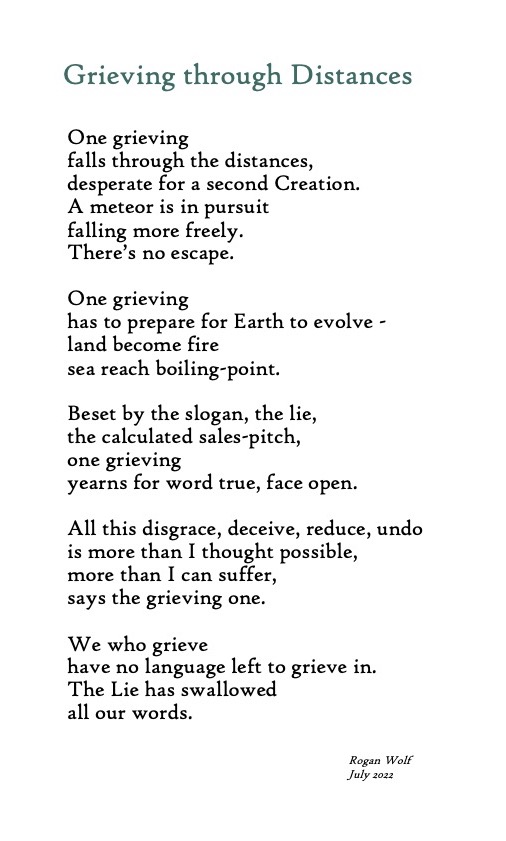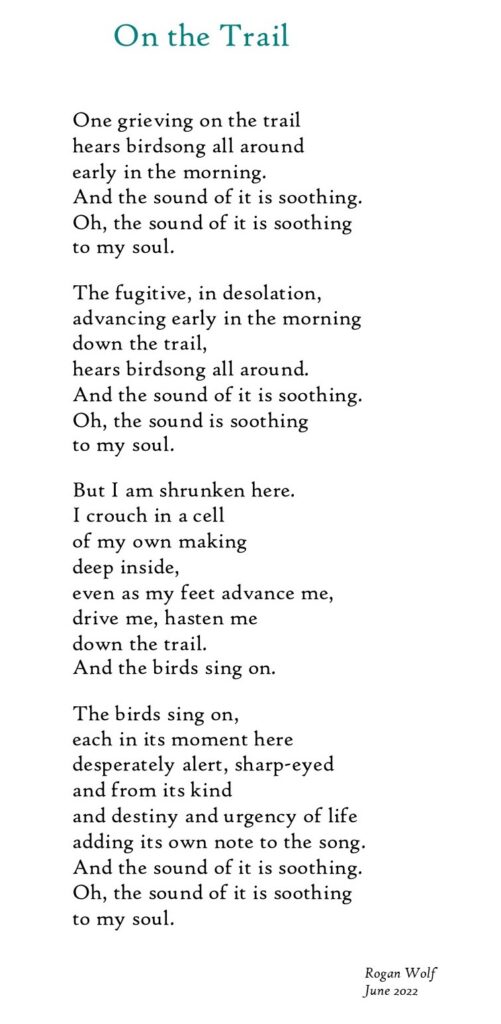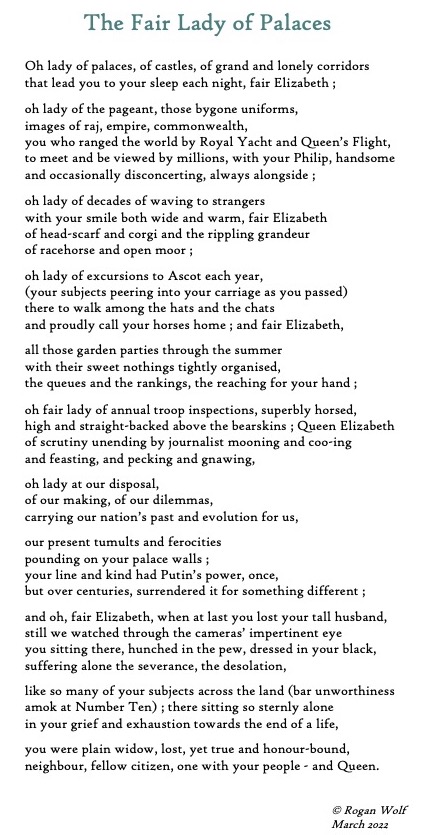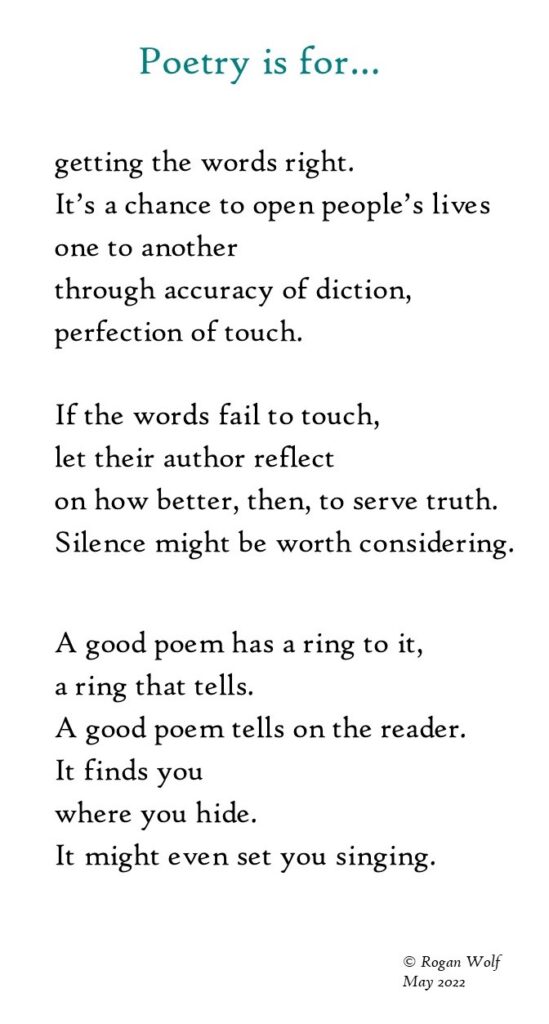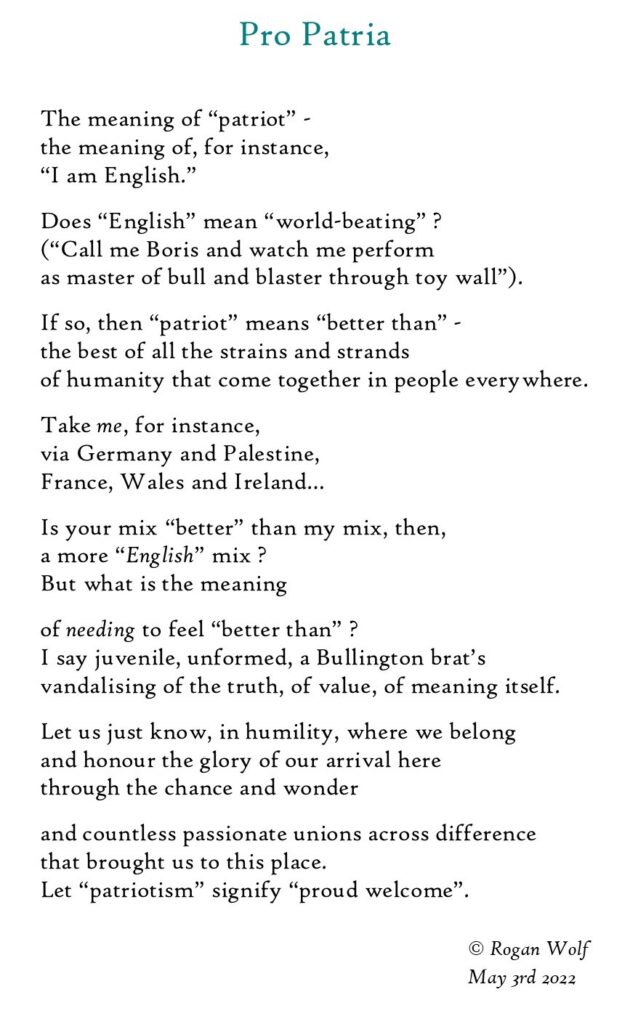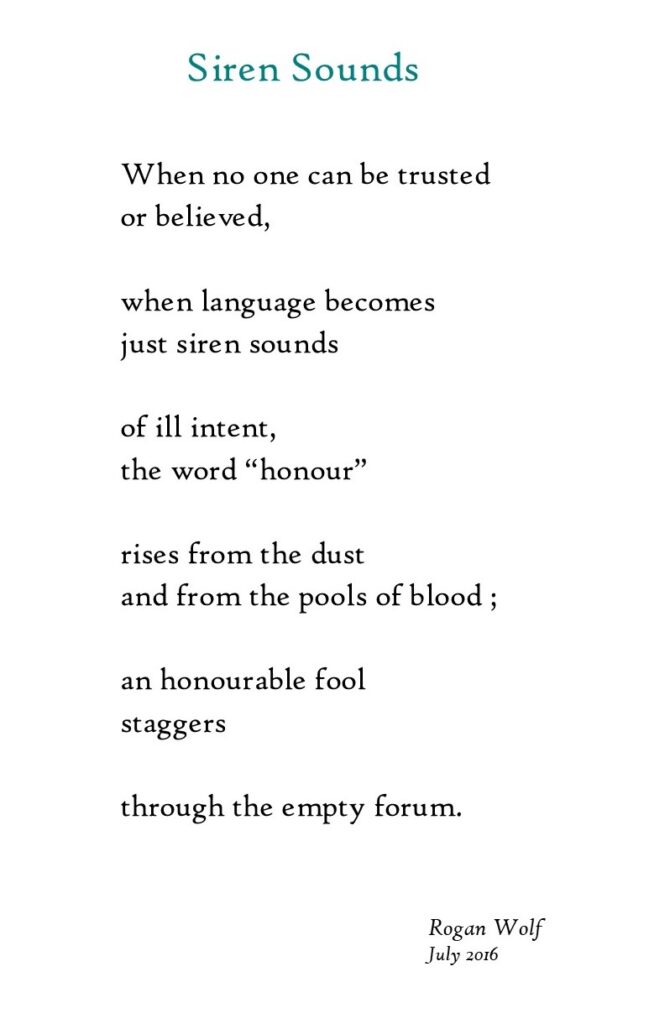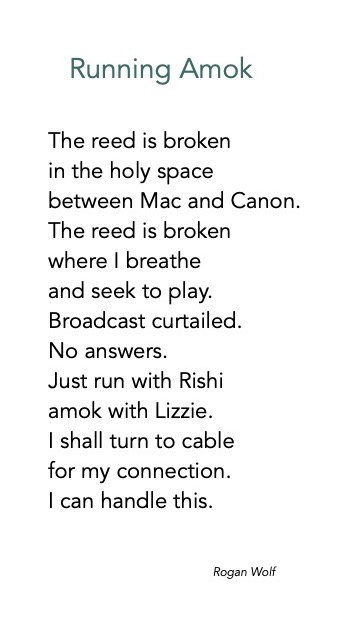
In all our sanctuaries we sit at risk
-
Posted:
-
-
-
Unworthiness Amok at Number Ten
After a week-end of celebration in praise of an honourable Queen, we in the UK are now entering a week which might prove quite troublesome for a dishonourable Prime Minister. He, his allies and their works remind me of a sentence on the back of a novel called “The Possessed” by Fyodor Dostoevsky : “The author is everywhere concerned with the passion which [some individuals] demonstrate for the lie in order to create a chaos that mirrors [their] tortured souls.”
Posted:
-
-
-
-

